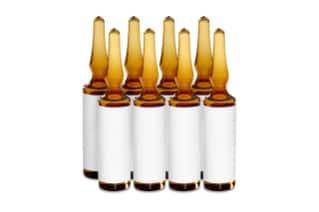
|
Separation Mode |
Reversed Phase |
|
Detection Method |
RI |
|
Formulation |
Liquid |
|
Storage Condition |
Room Temperature |
|
System Type |
LC |
|
Shelf Life |
36 Months |
|
Shipping Condition |
Ambient |
|
Volume |
10 mL |
|
Type |
Qualification |
|
UNSPSC |
41116107 |
|
Application |
System Performance |
|
Brand |
Alliance |
|
Product Type |
Standards |
|
Units per Package |
1 pk |

Alliance with RI Detector Qualification Standards Kit
The Alliance HPLC standards kit or also known as the Alliance with RI Detector Qualification Standards Kit contains standards appropriate for verification of system reproducibility, detector gain linearity, injector accuracy, and injector carryover. This reversed-phase standards kit can be stored at Room Temperature and Pressure up to a shelf life of 36 months and is shipped as a 10mL solution. Waters Qualification and Calibration Kits provide pre-packaged solutions with a Certificate of Analysis to help you complete your own qualification duties successfully.
The Alliance with RI Detector Qualification Standards Kit is listed as a flammable liquid and can be quite harmful if inhaled. The contents of the kit can also be toxic if they come in direct contact with the skin or if swallowed. It is highly recommended to handle the Alliance with RI Detector Qualification Standards Kit with best laboratory practices and immediately apply first aid and exposure control measures shared on the Material Safety Data Sheet in case of any exposure; you may need to consult a doctor or physician immediately as some effects may be delayed.
You can increase your productivity with the ideal lab equipment. To learn more about the variations of different standards and qualifications kits listed by Waters, or to find additional products to shop for lab equipment, you can browse through our website or refer to our catalog to ensure your lab needs are met as needed.
You might also be interested in checking out XSelect CSH C18 XP Column, 130Å, 2.5 µm, 4.6 mm X 100 mm, 1/pk; XSelect CSH C18 columns are general purpose C18 columns that provide alternative selectivity compared to other C18 sorbents. Charged Surface Hybrid (CSH) technology enables superior peak shape and increased loading capacity for basic compounds. Packed in ultra-low dispersion hardware, 2.5 µm eXtended Performance [XP] columns enable exceptional separation performance, robustness, and throughput for HPLC assays while enabling a seamless transition path toward UPLC adoption.
Is There A Distinction Between Luminescence And Fluorescence In Chromatography?
The most significant distinction between fluorescence and luminescence is that luminescence refers to any process in which photons are emitted without the presence of heat. Fluorescence, on the other hand, is a sort of luminescence in which a photon is absorbed first, causing the atom to be in an excited singlet state. When sensitivity and selectivity are required, fluorescence detection is typically used for analysis. When the analyte has little or no UV absorbance and can be derivatized to induce fluorescence, this is extremely advantageous.